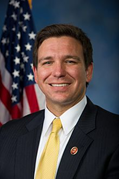Kansas board of education poised to consider anti-vaping policy, statutes – By Tim Carpenter, The Topeka Capital Journal
The Kansas State Board of Education welcomed a series of recommendations Tuesday in response to the e-cigarette epidemic among youths that featured four ideas for reforming state law and options for changing local school board policy to block vaping by students, employees and school visitors.
Motivation for taking a new path was drawn from anecdotal evidence that e-cigarette usage mushroomed in the past couple of years and from the spring survey of Kansas ninth-graders through 12th-graders. In the survey of public school students, 48.6% said they had used an electronic vapor product to consume tobacco. That was up from 34.8% in 2017 and reflected a 40% surge in use of the devices.
Kansas’ high-school aged students were much more likely to experiment with vaping than traditional cigarettes. The latest report showed 24.8% tried a cigarette, but 48.6% had vaped. The portion who consumed tobacco within 30 days of the survey ranged from 5.8% by cigarette to 22% by vaping.
Kansas Health Institute policy analyst Hina Shah said the state board of education could give thought to endorsing any of four areas of potential statutory change on tobacco consumption ahead of the 2020 session of the Kansas Legislature starting in January.

Florida Program Aims to Boost College Completion – By Sara Weissman, Diverse Issues in Higher Education
The Last Mile College Completion Program, spearheaded by Florida Governor Ron DeSantis, will allow Florida residents who left college because of cost to finish their degrees. There are 28 colleges participating, including Miami Dade College, which recently announced a new scholarship to help its returning students.
The scholarship for former Miami Dade College students provides in-state tuition and fees for up to 13 credits after all other scholarships, grants, financial aid and Florida Prepaid College Plan funds are applied.
Students need to have attended the school in the last eight years with good academic standing and need to be within 13 credit hours of achieving their degrees. They also need to have filled out the 2019-2020 FAFSA form.
The Last Mile College Completion Program puts “Florida on the path to becoming number one in the nation for its workforce by 2030,” DeSantis said in a statement.

Governor Ron DeSantis
Intention-Setting in the Classroom – By Taylor Hausburg and Zachary Herrmann, Edutopia
Intention-setting—a powerful mindfulness practice rooted in a rich contemplative history—is becoming a popular tool for supporting the personal and professional development of adults. Can it be used in the classroom in a way that supports student learning?
Intention-setting, it’s important to note, is different from goal-setting. Goals are clear targets that we strive to hit. For example, a student may articulate the goal: “By the end of class, I will have brainstormed several possible designs and decided which one I’m going to build based on the given criteria.”
Intentions are guiding principles that can help us, as individuals, connect our present actions to our personal values. They focus on who we are and who we could be in this moment. For example, “I want to be a more empathetic (or hard-working, generous, etc.) team member” may be an intention that a student establishes before launching into a group work session.
Intention-setting can lead to more generative individual and group work because students create aspirational visions of themselves and the way they hope to be prior to engaging in the work. When a student sets the intention to be more empathetic, diligent, generous, or in tune with the needs of their teammates, they’re also setting the stage for more fruitful collaboration.

Ohio task force aims to reinvent student high school experience – By Jeremy P. Kelley, The Dayton Daily News
An Ohio Department of Education task force will seek school and public input on redesigning the high school experience, in an effort to better prepare students for success in their adult lives.
The task force is an outgrowth from Ohio’s strategic plan for schools, and a response to repeated changes in the state’s graduation requirements. Both of those processes triggered debate among educators and legislators on what students should know and be able to do to earn a high school diploma.
“I think for a long time we’ve looked at high school as that finish line, and it’s not,” said Sarah Wilson, college and career readiness administrator at the Ohio Department of Education. “You have your entire life after high school, and you need to be prepared to take that next step. So how do we make sure that high school is inspiring students, engaging students, preparing students for those next steps? That’s what I’m hoping that we can coalesce around.”












